Center for Particle Cosmology Spotlight
Prof. Vijay Balasubramanian discusses time on Netflix series Explained
Vijay Balasubramanian, Cathy and Marc Lasry Professor and Center for Particle Cosmology faculty, was featured on the episode "Time" of the Netflix series Explained. The episode delved into the individual experience of time, the evolutionary pressures of time, and how we understand time as it relates to space and the universe. Prof. Balasubramanian explains that "matter and energy can bend space.
With help from Prof. Cullen Blake NEID spectrometer fully operational
The new NEID spectrometer at the WIYN Observatory is fully operational after taking it's first observations in January 2020. Thanks to a team of scientists including Prof. Cullen Blake, CfPC faculty and Associate Professor in the Department of Physics and Astronomy, NASA and NSF are accepting proposals to utilize this powerful new tool. “There’s a huge number of proposals, with lots of really interesting stuff—even some outside of the box sorts of things.
CfPC Co-Director Bhuvnesh Jain talks about the increasingly important role of "big data" in astronomical research
Bhuvnesh Jain, Walter H. and Leonore C. Annenberg Professor in the Natural Sciences and Co-Director of the Penn Center for Particle Cosmology, talked to Omnia, the magazine of Penn's School of Arts and Sciences, about what drew him to astrophysics as a child and the important role that big data and data analysis has played in cutting edge research in astronomy and cosmology today.
Center faculty, staff, and students contribute to "most precise 3D map of the universe to date"
Faculty, research staff, and students from the Center for Particle Cosmology and the Department of Physics and Astronomy have contributed to the efforts of the Dark Energy Survey, a global collaboration to better understand the role of dark matter and dark energy in the universe. The collaboration includes Professors Gary Bernstein, Bhuvnesh Jain, and Masao Sako along with other scholars and students. Dr.

New stellar stream, born outside the Milky Way, discovered with machine learning
Finding this new collection of stars, named after Nyx, the Greek goddess of night, was made possible using machine learning tools and simulations of data collected by the Gaia space observatory.
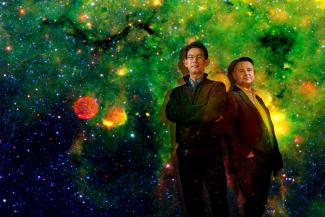
OMNIA 101: Exploring The Unseen
Masao Sako, Associate Professor of Physics and Astronomy, and Mark Trodden, Fay R. and Eugene L. Langberg Professor of Physics, explain how dark matter and dark energy shape their work.
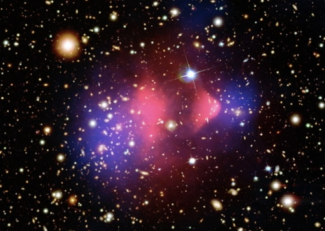
Knowledge by the Slice: Observing the Invisible
Bhuvnesh Jain, Walter H. and Leonore C. Annenberg Professor in the Natural Sciences, and Michael Weisberg, Professor and Chair of Philosophy, discuss the mystery of dark matter and the use of some of the world’s largest telescopes to search for it.
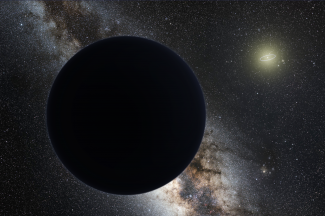
The search for Planet 9, 10, and beyond
Planetary scientists and cosmologists at Penn work together to find planets that might be hiding in the far reaches of the solar system. Researchers at Penn hosted a first-of-its-kind workshop by bringing together experts in planetary science and cosmology to develop a strategy for finding new planets and studying objects in the outer reaches of the solar system.
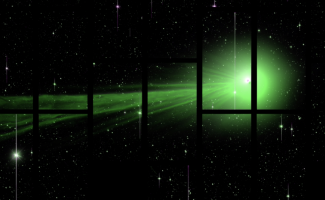
Dark Energy Survey completes six-year mission
A global research effort to map a portion of the sky in unprecedented detail is coming to an end, but the task of learning more about the expansion of the universe has only just begun.
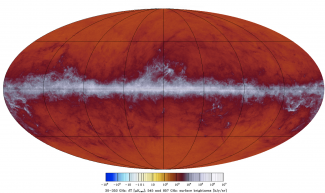
Where do comets originate?
A new technique developed by team of Penn astronomers may allow scientists to measure radiation from celestial bodies that are only theorized to exist. Indeed, the team presents an intriguing detection of radiation that may well originate from the source of comets around nearby stars.
